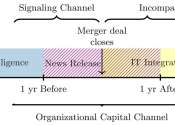Celebrity deepfakes are all over TikTok. Here's why they're becoming common, and how you can spot them
One of the world's most popular social media platforms, TikTok, is now host to a steady stream of deepfake videos.
Jul 19, 2022
0
25
Internet

One of the world's most popular social media platforms, TikTok, is now host to a steady stream of deepfake videos.
Jul 19, 2022
0
25
Machine learning & AI

Researchers at the University of Maryland, Baltimore County (UMBC) have made strides in automated legal document analytics (ALDA) by creating a way to machine-process the Code of Federal Regulations (CFR). The CFR is a complex ...
Jan 29, 2021
0
25
Computer Sciences

Human society is on the verge of transforming from an information society to an intelligent society, where optimized computing can autonomously solve practical, real-world problems. Critically, this transition is dependent ...
Jan 17, 2023
0
33
Consumer & Gadgets

Automation and computer-aided designs are seeding the future of home gardens. With the onset of designer gardens as a service and rose-pruning robots, weekends spent toiling in the garden will be more productive and personalized.
Jul 1, 2022
0
18
Automotive

Driverless cars have been expected to revolutionize motoring, with some commentators predicting everyone would be a permanent backseat driver by now.
Nov 22, 2021
0
18
Machine learning & AI

If you want to research historical events for a college essay, learn about tropical fish, or even translate text into a different language, you can type keywords into an internet search engine and get almost instant results ...
Jul 16, 2020
0
16
Security

The period during and after hospital mergers and acquisitions is an especially vulnerable time for patient data when the chance of a cybersecurity breach more than doubles, according to research by a University of Texas at ...
Aug 4, 2023
0
31
Automotive

In a promising development for self-driving car technology, a research team at NYU Tandon School of Engineering has unveiled an algorithm—known as Neurosymbolic Meta-Reinforcement Lookahead Learning (NUMERLA)—that could ...
Sep 15, 2023
0
17
Machine learning & AI

Launched in November 2022, ChatGPT is a chatbot that can not only engage in human-like conversation, but also provide accurate answers to questions in a wide range of knowledge domains. The chatbot, created by the firm OpenAI, ...
Feb 9, 2023
0
23
Other

Under a blazing sun in Mali's capital, Amadou Menta leant over to measure a gutter then jotted down the results on a mapping app on his smartphone.
Aug 29, 2022
0
16
Knowledge is a familiarity with someone or something unknown, which can include information, facts, descriptions, or skills acquired through experience or education. It can refer to the theoretical or practical understanding of a subject. It can be implicit (as with practical skill or expertise) or explicit (as with the theoretical understanding of a subject); and it can be more or less formal or systematic. In philosophy, the study of knowledge is called epistemology, and the philosopher Plato famously defined knowledge as "justified true belief." There is however no single agreed upon definition of knowledge, and there are numerous theories to explain it.
Knowledge acquisition involves complex cognitive processes: perception, learning, communication, association and reasoning; while knowledge is also said to be related to the capacity of acknowledgment in human beings.
This text uses material from Wikipedia, licensed under CC BY-SA